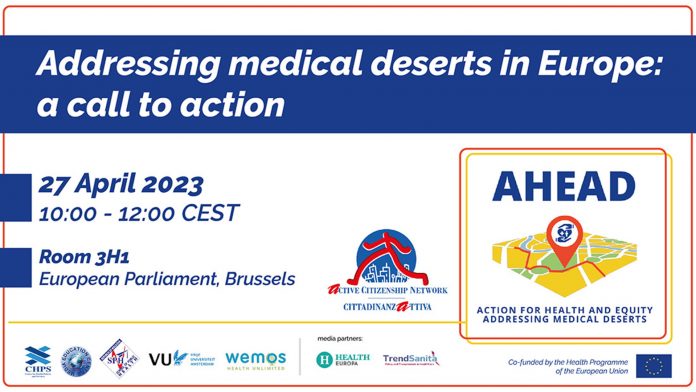
The COVID-19 pandemic highlighted the inequalities and differences among the EU Member States’ healthcare systems even further.
Notably, the 2021 State of Health in EU Companion report brought attention to the need to rethink the structure of healthcare systems and workforce strategies across the Union and address geographic disparities in the availability of health and care professionals. Starting with the primary indicator of health worker density in various Member States, the available data in the 2021 State of Health in EU Companion report indicates a 5.6-fold difference between the region’s highest and lowest density of physicians.
This highlights the diversity of physician availability, not just among different countries but also within different regions in countries, from rural to urban settings. Similar patterns can be seen in the availability of other health professional cadres, in cure, care and prevention, including the social domain. The lower the density of health workers in a region, the more likely it is to be considered a medical desert.
Moreover, the State of Health in EU Companion report has shown that almost all European Member states need help recruiting health personnel, particularly in remote and rural areas. These areas are often considered unattractive due to sub-standard services such as education facilities, employment opportunities, connectivity, infrastructure, and public transport.
A call to action
In this context, a policy dialogue event at the EU Parliament this week will explore the ‘medical desertification’ phenomenon across different healthcare systems and launch a ‘Call to Action’ tailored to institutional and non-institutional entities, covering a wide range of stakeholders and actors. The event will be held on 27 April 2023 from 10:00 to 12:00 in Room ASP 3H1 at the European Parliament in Brussels, hosted by Italian MEP Beatrice Covassi.
Doing justice to the multi-dimensional nature of medical desertification and the multi-sectorial action needed to address them, the policy dialogue will involve speakers with different backgrounds and mandates.
The event is organised in the context of the EU project ‘AHEAD’ – Action for Health and Equity, Addressing medical Deserts – which started in April 2021 to contribute to policy-making that tackles the challenge of medical deserts and medical desertification across European healthcare systems to help reduce health inequalities.
The fact that the European Union – through the EU4Health programme – has allocated funds to the topic shows the attention that the European institutions and healthcare systems are paying to it, but above all, we are facing a phenomenon that can no longer be associated only with specific regions or Member States, but that instead affects Europe as a whole.
Having said this, the fact that the National Recovery and Resilience Plans (NRRPs) have not included sufficient and adequate measures to deal with this challenge is a paradox that can hardly be justified.
On the one hand, we owe eternal gratitude to health workers for their sacrifice in battling the pandemic; on the other hand, their legitimate demands are still not considered a top priority in many countries of the European Union when allocating the NRRPs funds for public health. This is a discrepancy that citizens and patients are paying dearly for, with restrictions on their right to access services within healthcare systems, whether preventative, primary, secondary, or highly specialised care.
Join the discussion
At the conference in the European Parliament, representatives of the EU Commission (DG Sante and DG Agri), Member of the EU Parliament, the WHO European Regional Office, the European Committee of the Regions, health care providers, and independent experts will join the discussion.
To follow the dialogue, a link to follow the web streaming will be disseminated 24-48 hours before the event via social media by all the AHEAD consortium partners: Wemos from The Netherlands (coordinator); The Media Education Centre–MEC from Serbia; The Foundation Center for Health Policies and Services-CHPS from Romania; The Athena Institute from The Netherlands; The School of Public Health Management-NSPHM from Republic of Moldova; Cittadinanzattiva/Active Citizenship Network from Italy.
The Call to Action for European healthcare systems will be finalised after the meeting and disseminated widely, offering the opportunity to endorse it for those interested.










